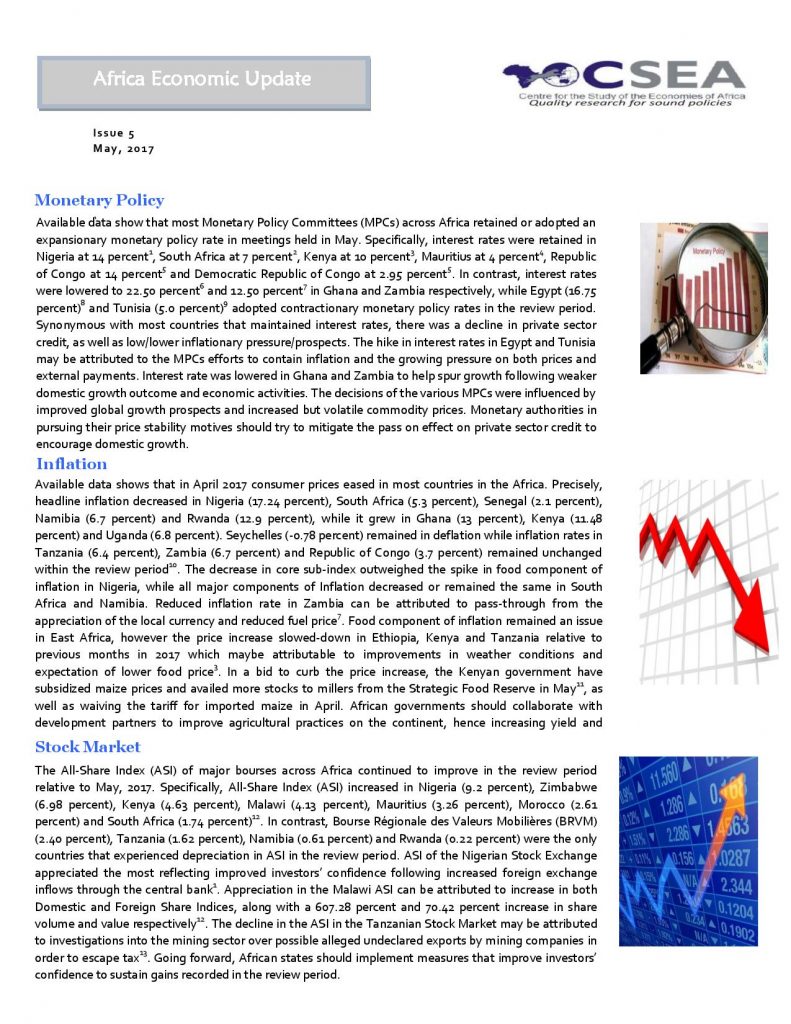Macroeconomic Report & Economic Updates

August 19, 2017
Africa Economic Update (Issue 6)
Available data shows that headline inflation reduced in most countries in the region in May 2017 relative to preceding months. Notably, headline inflation decreased in Nigeria (16.25 percent), Ghana (12.26 percent), Tanzania (6.1 percent), Senegal (1.8 percent), Namibia (6.3 percent) and Rwanda (11.7 percent), while it grew in South Africa (5.4 percent), Kenya (11.7 percent), Ethiopia (8.7 percent) and Uganda (7.2 percent). Cote dIvoire (-0.4 percent) recorded consumer price deflation. The decrease in consumer price in Nigeria, Tanzania and Ghana can be attributed to decreases in both food and non-food components of inflation. Regionally, all countries in Southern Africa recorded single digits inflation, however consumer price marginally increased in South Africa, for the first time in 2017 owing to spike in food prices6, and Botswana (both by 0.1 percent).
